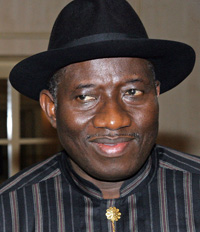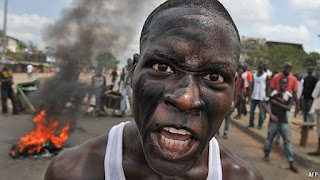Catching up
It's been about 3 months since I last posted a blog. The original plan was to post every day so I'm clearly way behind. I don't have a lot of time to post today but I'll make a plan to catch up over the past 3 months. 1. Nigeria's election was postponed a few days and, as expected, Goodluck Jonathan won handily. I'll do a little recap of the election. 2. In Cote d'Ivoire, Gbagbo eventually gave up after troops supporting Ouattara (French and Ivoirien) marched through Abidjan and laid siege to the Presidential Palace where Gbagbo was holed up. I'll do a quick recap of the transition and what's been happening since. 3. The civil war in Libya continues. I'll do an update. 4. I'll also do an update on Tunisia, and ... 5. ... Egypt since they succesfully overthrew their authoritarian presidents. 6. I'll also do an update on what's been happening in South Sudan since they voted for independence. 7. South Africa had an e...



